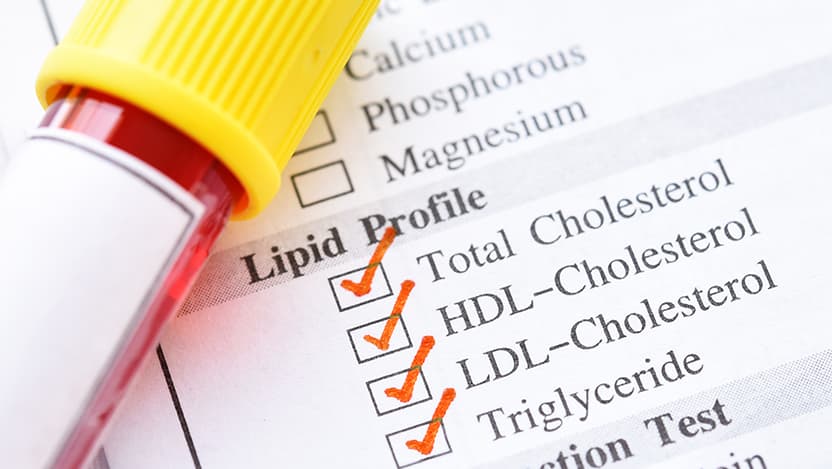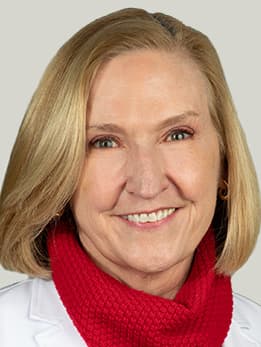Lowering LDL cholesterol to reduce heart risk

When it comes to cholesterol, there’s the good, the bad and the very bad. At the Lipid Clinic at the University of Chicago Medicine, we help patients manage all of their cholesterol and blood fats (lipids). Keeping your cholesterol at healthy HDL and LDL levels is very important in preventing heart attacks, strokes and other cardiovascular diseases.
About 80% to 90% of heart disease is preventable with education and action. Treating cholesterol production problems is the foundation for preventing serious cholesterol-related issues, but knowing more about cholesterol in general is an important first step.
By answering some of the most common questions about high cholesterol, early prevention and treatment options, our goal is to give you a better understanding of cholesterol and what that could mean for your health.
What is cholesterol?
Cholesterol is a fat found in the blood stream that your body needs to build cells and make certain hormones. It comes from two main sources: your liver, which produces the amount your body needs, and the food you eat, especially animal products like meat, dairy and eggs.
While cholesterol is important to the body, we live longer and healthier lives when we are actively working to maintain low levels of cholesterol.
Normal Cholesterol Levels
Cholesterol levels are unique for everyone and can vary based on factors like your age, gender and health history. Cholesterol is measured in milligrams per deciliter (mg/dL), and below are typical cholesterol breakdowns.
Here’s what the total cholesterol levels in adults typically look like:
- Normal: Less than 200 mg/dL
- Borderline high: 200 to 239 mg/dL
- High: 240 mg/dL and above
For LDL (bad cholesterol), the ranges for adults are:
- Optimal: Less than 100 mg/dL (especially for people with diabetes or heart disease)
- Near optimal: 100 to 129 mg/dL
- Borderline high: 130 to 159 mg/dL
- High: 160 to 189 mg/dL
- Very high: 190 mg/dL and higher
Your healthcare provider can help you understand your numbers and what steps to take if your cholesterol is outside the healthy range.
What is the difference between HDL and LDL cholesterol?
We often hear about “good” cholesterol and “bad” cholesterol without experts fully explaining the difference between the two, and what that means to us and our heart health. Though this may be too simplistic, there are two main types of cholesterol:
- LDL (low-density lipoprotein): LDL is often called "bad" cholesterol. This is important because high levels of LDL can cause plaque to build up in your arteries, leading to heart disease and other health problems.
- HDL (high-density lipoprotein): HDL is known as "good" cholesterol, HDL helps remove excess cholesterol from your bloodstream, preventing excess build up in the heart and keeping it healthy for longer.
It’s important to keep cholesterol levels in a healthy range to keep your heart strong. Too much "bad" cholesterol can increase your risk of heart attacks and strokes, while having enough "good" cholesterol helps protect you from these risks. Lowering LDL cholesterol is by far the most proven, and generally the easiest, way to reduce risk of heart disease.
You can manage your cholesterol by eating a healthy diet, exercising regularly, and sometimes, with medications if recommended by your doctor.
What causes high cholesterol and who is at risk?
Everyone should keep an eye on their cholesterol. However, it is common for people to become concerned about their health after someone in their family has a heart attack, stroke or other heart disease.
It is common for people to understand their own heart disease risks and how to prevent the same thing from happening to them. High cholesterol is often a contributing factor to heart disease,
High cholesterol can be caused by a variety of risk factors that range from lifestyle choices to genetic predispositions, with the most common being:
- Smoking: Smoking damages your blood vessels, making it easier for cholesterol to build up in your arteries. It also lowers your HDL cholesterol.
- Unhealthy diet: Eating foods high in saturated fats (like red meat, full-fat dairy products, and fried foods) and trans fats (found in some baked goods and processed snacks) can raise your LDL (bad) cholesterol levels.
- Lack of physical activity: Not being active enough can lower your HDL (good) cholesterol, making it harder to clear out excess cholesterol from your bloodstream. Exercise helps improve this balance.
- Family history: If high cholesterol runs in your family, you may be more likely to have it, regardless of lifestyle. Genetics play a role too.
- Existing health conditions: Conditions like diabetes, hypothyroidism, and kidney or liver disease can also contribute to high cholesterol.
Is high cholesterol genetic?
People can inherit high cholesterol, which is often known as familial hypercholesterolemia (FH). This is a genetic disorder that creates a defect in the way LDL cholesterol is cleared from the blood, leading to early heart disease.
If you are diagnosed with FH cholesterol, your parents, siblings and children should be screened for the conditions as well. Identifying who is at risk and starting them on a cholesterol-lowering treatment as soon as possible can help prevent high cholesterol early.
High Cholesterol Treatment
Treating high cholesterol is not one-size-fits-all. To have the best results for our patients, we have to know their condition(s), risk factors and symptoms to develop a tailored treatment plan. Some patients come to the Lipid Clinic for a preventive cholesterol plan to lower their risk of having cholesterol-related heart disease, while others could require more intense treatment.
For example, people who smoke, have diabetes or high blood pressure often come to the clinic if they can’t tolerate statins to lower their cholesterol. Alternatively, we also see patients who already had a heart attack or stroke and still need additional treatment of their cholesterol level to achieve their lower cholesterol goals. A patient who has had a heart attack or stroke is considered extremely high risk and is treated to achieve a very, very low LDL cholesterol level.
By making healthy lifestyle choices—like eating a balanced diet, staying active and avoiding smoking—you can help control your cholesterol levels. Some people may also need medication to manage high cholesterol, especially if genetics play a role.
Why Choose UChicago Medicine’s Lipid Clinic?
As a clinical cardiologist for more than 30 years, my job is to prevent cardiovascular disease. After practicing cardiology for many years, I realized that the ability to successfully treat abnormal levels of cholesterol and lipids was critically important. I was one of the first physicians in the country to receive Diplomate status with the Accreditation Council for Clinical Lipidology (ACCL), and I was named a Clinical Lipid Specialist by the National Lipid Association. Currently, my practice specializes in preventive and noninvasive treatments for a wide range of heart conditions, including high cholesterol.
Cardiologist Kathleen Drinan, DO, leads the Lipid Clinic at UChicago Medicine. To make an appointment, call 1-773-702-9461.

Kathleen Drinan, DO
Kathleen Drinan, DO, FACC, FACOI, is a highly skilled clinical cardiologist with over 30 years of cardiac experience. Dr. Drinan is trained in preventive and non-invasive treatments for a wide range of heart conditions, including understanding the difference between heart disease in men and women.
Learn more about Dr. DrinanLipid Clinic
University of Chicago physicians are world renown for their research into cholesterol and the genetics of lipid disorders, or high cholesterol problems that run in families. Lipid Clinic physicians offer specialized tests to evaluate suspected lipid disorders, including familial hypercholesterolemia.
Learn more about our lipid clinic